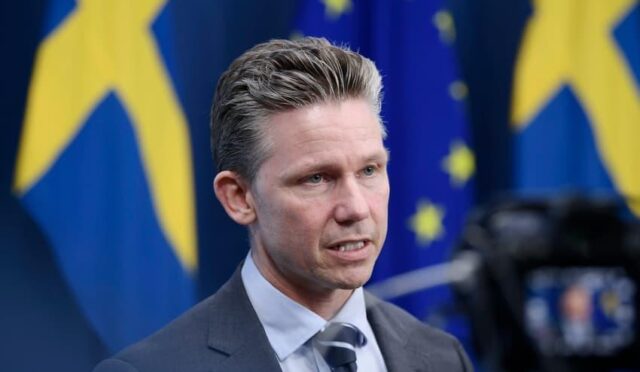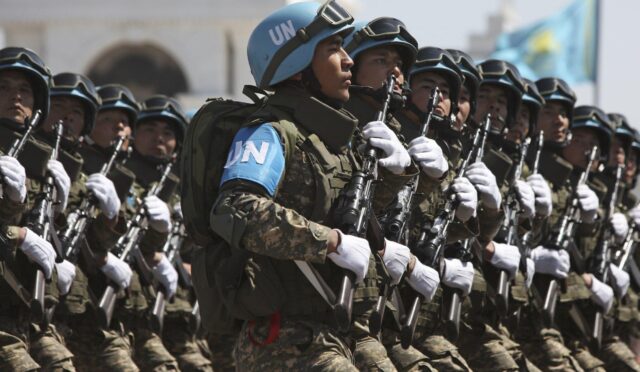Syria’s New Leadership Takes Charge
In a significant shift in power dynamics, Ahmed al-Sharaa, Syria’s newly appointed leader, announced on Sunday that all weapons within the country, including those controlled by Kurdish-led forces, will come under state authority. This declaration came shortly after Sharaa’s meetings with Turkish Foreign Minister Hakan Fidan and Lebanese Druze leaders, where he emphasized the need to curb external influences in Lebanon.
Sharaa’s rise to power was bolstered by Ankara-backed rebels who played a crucial role in supporting his Islamist group, Hayat Tahrir al-Sham (HTS). This coalition was pivotal in the recent offensive that culminated in the capture of Damascus on December 8, marking the end of Bashar al-Assad’s long rule.
Commitment to National Unity
During a press conference with Fidan, Sharaa expressed a firm stance on the dissolution of armed factions, stating that they would begin integrating into the national army. He stressed that Syria will not tolerate any weapons outside of state control, specifically referencing those held by the Syrian Democratic Forces (SDF) led by Kurdish groups.
Dressing in a suit and tie instead of his military uniform, Sharaa highlighted his administration’s commitment to protecting diverse sects and minorities from inter-community violence and external provocations. He reiterated, “Syria is a country for all, and we can coexist together,” a sentiment echoed by citizens at a bustling Christmas market in Damascus.
Calls for International Support
In a broader context, Turkey’s Foreign Minister Fidan urged the international community to lift sanctions imposed on Syria, advocating for mobilization to aid the country’s recovery and facilitate the return of displaced individuals. This call comes amid a civil war that has lasted nearly 14 years, claiming over half a million lives and displacing millions, with significant numbers seeking refuge in Turkey.
Despite the ongoing conflict, the relationship between Turkey and Syria’s new leadership remains strong, with Turkey continuing military operations against Kurdish forces in northeastern Syria. The complexities of these interactions reflect a delicate balance of power in the region.
Escalating Tensions in Northern Syria
Recent developments in the Kurdish-held border town of Kobane have raised alarms, as German diplomat Tobias Tunkel reported discussions with SDF leader Mazloum Abdi regarding rising tensions in the area. The Syrian Observatory for Human Rights noted casualties from artillery shelling by pro-Turkey factions, escalating clashes between these factions and the SDF.
Turkey’s designation of the People’s Protection Units (YPG), a key component of the SDF, as affiliated with the PKK, which is labeled a terrorist organization by Turkey and its Western allies, adds another layer of complexity to the ongoing conflict.
Shifting Regional Alliances
In a surprising turn of events, Saudi Arabia is re-engaging with Syria’s new authorities after years of supporting opposition forces against Assad. The Syrian ambassador in Riyadh announced plans for an impending delegation visit, signaling potential shifts in regional alliances.
During discussions with Lebanese Druze leaders, Sharaa assured that Syria would refrain from any negative interference in Lebanon. He acknowledged the historical context of Syria’s role in Lebanon, asserting a commitment to maintaining neutrality among various factions within its neighbor.
Historical Context of Syrian Involvement in Lebanon
Syria’s military presence in Lebanon, which began in 1976, officially ended in 2005 following widespread protests linked to the assassination of former Prime Minister Rafic Hariri. This withdrawal marked a significant moment in Lebanese-Syrian relations, which have often been fraught with tension.
The Druze minority, which spans Lebanon, Syria, Israel, and Jordan, was represented by prominent figures like Walid Jumblatt, who historically criticized both Assad and his father, Hafez. Jumblatt’s recent visit to Damascus underscores a potential thaw in relations between the two nations.
Concerns Over Extremism
The rise of HTS, classified as a terrorist organization by several governments, has sparked concerns despite the group’s attempts to moderate its image. Global powers, including the US and the EU, have increased dialogue with Syria’s new leadership, emphasizing the importance of protecting women’s rights and minority communities.
The ongoing need to combat terrorism and extremism remains a priority for these nations, reflecting the complex geopolitical landscape that Syria navigates amidst both local and international pressures.
Iran’s Strategic Role
Iran has long been a strategic ally for Assad, facilitating weapons supplies to Hezbollah as part of a broader coalition against Israel. This alliance, often referred to as the ‘axis of resistance,’ has encountered significant challenges, particularly due to recent Israeli military actions targeting Hezbollah leadership.
In a recent statement, Ayatollah Ali Khamenei, Iran’s supreme leader, dismissed the notion that these armed groups operate as proxies, asserting that Iran would act independently if necessary. This claim underscores the complex and often contentious nature of Iran’s regional influence.







